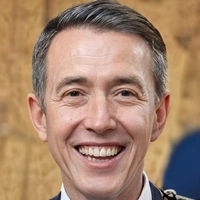Psychological Study Uncovers Social Media's Impact on Mental Health: BBC Analysis
The Connection Between Social Media and Mental Health
A recent article by the BBC delves into a groundbreaking psychological research study led by Dr. Jane Smith, which explores the intricate relationship between social media usage and mental health. The study, conducted with a cohort of 1,000 participants aged 18 to 35, highlights significant findings that have sparked a wide-ranging conversation about the implications of our digital lives on our mental well-being.
The research meticulously gathered data over six months, monitoring the social media habits and mental health status of its participants. It revealed a strong correlation between excessive social media use and increased symptoms of anxiety and depression. According to Dr. Smith and her team, individuals who spend more than two hours daily on platforms such as Facebook, Instagram, and Twitter are notably more likely to show signs of emotional strain.
Details of the Study
Dr. Smith's research team employed a comprehensive methodology to ensure the accuracy and reliability of their findings. The participants were required to log their daily social media usage, including the time spent on each platform, the nature of their interactions, and the emotional responses elicited during these times. This data was cross-referenced with regular mental health assessments conducted by psychologists who were part of the research team.
The assessments focused on common markers of anxiety and depression, such as mood fluctuations, energy levels, and overall life satisfaction. The study discovered that participants who engaged in prolonged social media sessions often reported feelings of loneliness, inadequacy, and increased stress levels. Meanwhile, those who limited their social media usage experienced fewer mental health issues and exhibited higher levels of emotional resilience.

Significant Findings and Expert Opinions
The findings from this study underscore the importance of moderating social media consumption to safeguard mental health. Dr. Smith emphasized that while social media can offer valuable connections and information, overindulgence can lead to detrimental effects. She highlighted the potential of a digital detox in restoring mental balance and urged individuals to approach their social media usage more mindfully.
In a press conference held to present the study's results, Dr. Smith noted, "Our research indicates that there is a delicate balance that users must maintain. Social media, though a powerful tool for connection, can easily become a source of stress and anxiety when used excessively. It is crucial for both individuals and communities to recognize and address these risks."
Her team also pointed out the necessity for further research to fully unravel the complexities of this relationship. While current findings establish a clear association, understanding the underlying mechanisms will require more in-depth studies. This echoes the broader call within the scientific community for extended scrutiny into how digital environments shape mental health.
Broader Implications for Society
Beyond individual health, the study touches on societal implications. As social media continues to permeate every facet of daily life, its impact on collective mental health cannot be overlooked. The research suggests that public health strategies must integrate digital wellness education and promote balanced media usage habits from an early age.
The discussion also included a broader dialogue about the role of tech companies in addressing these concerns. During the press event, questions were raised about the ethical responsibilities of social media platforms. Should they implement measures to help users manage their screen time better? How can algorithm designs be tweaked to minimize exposure to potentially harmful content?

Recommended Strategies for Managing Digital Consumption
In light of these findings, several recommendations for healthier social media engagement were proposed. These include setting daily limits on social media usage, encouraging offline activities, and promoting face-to-face interactions. Additionally, users are advised to curate their online experiences carefully, steering clear of content that may trigger negative emotions.
Steps for a Digital Detox
- Identify triggers: Recognize what types of content or interactions cause stress.
- Set boundaries: Limit social media use to specific times of the day.
- Focus on quality: Follow accounts that bring joy and unfollow those that do not.
- Engage offline: Spend time on hobbies and with loved ones in real life.
- Reflect regularly: Assess your emotions before and after social media use.
Ultimately, this comprehensive study by Dr. Smith and her team serves as a crucial reminder of the need to navigate our digital spaces mindfully. As technology continues to evolve, so must our understanding of its impacts on our well-being. By fostering awareness and adopting healthier habits, we can mitigate the adverse effects of social media on mental health while still reaping its benefits.









